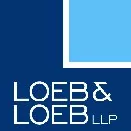In Meyer v. Portfolio Recovery Associates LLC, plaintiff Jesse Meyer (Meyer), on behalf of himself and a putative class, alleged that debt collection service Portfolio Recovery Associates (PRA) violated the federal Telephone Consumer Protection Act (TCPA) by using an automated dialer to call debtors' cell phones without obtaining prior express consent. Meyer moved for a preliminary injunction and provisional class certification. The district court granted the motion. On October 12, 2012, the Ninth Circuit affirmed. This is the first case in which the Ninth Circuit has considered the issue of class certification under the TCPA.
The class was defined as all California persons PRA contacted using a cell phone number that PRA did not obtain from either the creditor or the debtor. In provisionally certifying this class, the Ninth Circuit held that Meyer had met the requirements of Federal Rule of Civil Procedure 23(a). PRA had argued that individualized issues of consent precluded a finding of typicality or commonality because some debtors might have agreed to be contacted at any telephone number, including telephone numbers obtained after the original transactions related to the debts. The Ninth Circuit disagreed, holding that under the TCPA, "prior express consent is deemed granted only if the wireless telephone number was provided by the consumer to the creditor, and only if it was provided at the time of the transaction that resulted in the debt at issue." Thus, even if consumers provided their cell phone numbers to creditors after the original transactions, they "are not deemed to have consented to be contacted at those numbers for purposes of the TCPA."
PRA had also argued that the proposed class was overbroad because it might include debtors who had provided express consent to be contacted on their cell phones but whose telephone numbers had been obtained through skip-tracing, the process of gathering and verifying new consumer information. The court was not persuaded, noting that PRA had not identified a single instance in which a debtor had given a cell phone number to a creditor that PRA had also found through skip-tracing. Further, the evidence suggested that cell phone numbers found through skip-tracing were unlikely to have been provided by debtors. PRA's practice was to contact debtors using information received from creditors and to use skip-tracing only if the debtors could not be reached using existing information.
The Ninth Circuit also reaffirmed its holding in Satterfield v. Simon & Schuster, Inc., 569 F.3d 946 (9th Cir. 2009) that the mere capacity-not ability-of PRA's predictive dialers to store, produce, or call random or sequential numbers was sufficient to constitute an "automatic telephone dialing system" under the statute. A predictive dialer is equipment that dials numbers and, with certain computer software, can assist telemarketers in predicting when a sales agent will become available to receive telephone calls.
Last, the Ninth Circuit rejected PRA's "as applied" due process challenge to the TCPA, the basis of which was not clear. The court held that prohibiting the use of automatic dialers to dial cell phones without prior express consent is a rational means of achieving one of Congress' primary goals in enacting the TCPA-to protect the right to privacy; thus, PRA had no valid due process challenge. This is not the first time the Ninth Circuit has rejected a constitutional challenge to the TCPA. See Moser v. FCC, 46 F.3d 970 (9th Cir. 1995) (provision in the TCPA banning automated, prerecorded calls to residences does not violate the First Amendment).
The Ninth Circuit's interpretation of "prior express consent" under the TCPA suggests that creditors and debt collectors cannot use cell phone numbers they receive from sources other than the debtors. Meyer seems to make clear that creditors and debt collectors must verify that debtors provided their cell phone numbers and that the numbers were provided at the time of the transactions related to the debts before contact is made using an automated or predictive dialer. That said, however, creditors or debt collectors may still use skip-tracing or later-acquired cell phone numbers voluntarily provided by debtors to contact debtors if a live operator dials the numbers. Creditors and debt collectors should also be able to use later-provided cell phone numbers from debtors provided they obtain subsequent express authorization from debtors to contact them at these new numbers for purposes of debt collection.
Given the transient nature of borrowers in the current economic climate, creditors and debt collectors should expressly request that consumers provide cell phone numbers at the time of the transactions resulting in the debts (e.g., through documentation such as purchase agreements, sales slips, and credit applications) and provide clear notice to consumers that they may be contacted at these numbers in connection with their debts. For cell phone numbers later provided by debtors, it is imperative that creditors and debt collectors make clear that they may be contacted at these numbers for purposes of debt collection and that creditors and debt collectors obtain subsequent express consent in writing.
The content of this article is intended to provide a general guide to the subject matter. Specialist advice should be sought about your specific circumstances.


